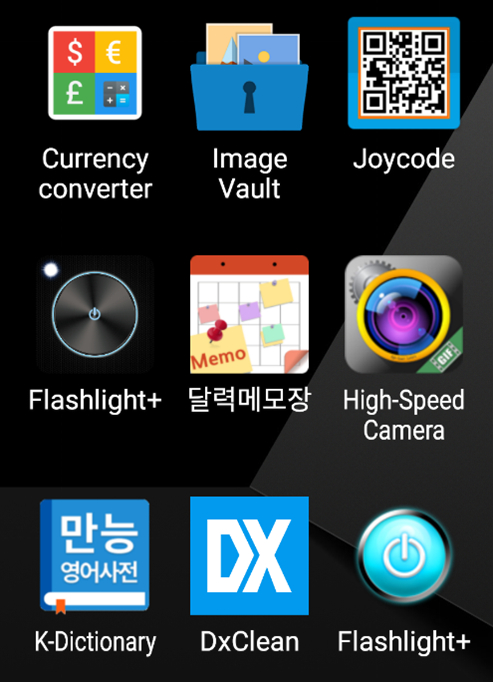Millions of Android users suffer from battery-stealing malware apps — delete them now
16 Android apps found with Clicker malware on Google Play Store

Sign up to receive The Snapshot, a free special dispatch from Laptop Mag, in your inbox.
You are now subscribed
Your newsletter sign-up was successful
Malicious Android apps with Clicker malware have been spotted by cybersecurity researchers, as 16 apps with 20 million downloads were on the Google Play Store — and they can drain your phone's battery life.
Discovered by McAfee Mobile Security, researchers found that malicious code snuck its way into a number of utility apps, which threat actors often use to trick users into downloading. These include apps such as QR readers, flashlights, unit converters, task managers, and more.
This led to around 20 million downloads, with the apps hiding ad fraud features so attackers can make a profit without the user's knowledge. This is done through a clicker trojan, which continuously makes connections to websites and generates revenue through fake clicks on pay-per-click bases.
As McAfee's security team points out, "Mainly, it is visiting websites which are delivered by FCM message and browsing them successively in the background while mimicking user’s behavior." Unfortunately, this will cause heavy data usage and will even drain your device's battery right under the user's nose — all for the threat actor to make some cash.
For those who have noticed their phone's battery life isn't as long as it used to be, it could be due to these apps.
Delete these apps
While McAfee has already notified Google of the malicious apps and are no longer available on Google Play, that doesn't mean they may not be installed on your phone. It's a good idea to delete the Android apps listed below, especially if it will boost your smartphone's battery life and performance.
- High-Speed Camera - com.hantor.CozyCamera
- Smart Task Manager - com.james.SmartTaskManager
- Flashlight+ - kr.caramel.flash_plus
- 달력메모장 - com.smh.memocalendar
- K-Dictionary - com.joysoft.wordBook
- BusanBus - com.kmshack.BusanBus
- Flashlight+ - com.candlencom.candleprotest
- Quick Note - com.movinapp.quicknote
- Currency Converter - com.smartwho.SmartCurrencyConverter
- Joycode - com.joysoft.barcode
- EzDica - com.joysoft.ezdica
- Instagram Profile Downloader - com.schedulezero.instapp
- Ez Notes - com.meek.tingboard
- 손전등 - com.candlencom.flashlite
- 계산기 - com.doubleline.calcul
- Flashlight+ - com.dev.imagevault
Stay away from suspicious apps
Unfortunately, a number of malware-infested apps make their way onto the Google Play Store, meaning it's a good idea to use one of the best antivirus apps to keep malicious actors at bay. This includes a knock-off WhatsApp on Android that uses malware to steal your account, along with malware-infested Android apps stealing money.
Despite these apps being advertised on trusted platforms, this doesn't mean they can be trusted. Be aware of what apps you download on Android, and stick to the official apps to stay clear of any malware threat. It's also a good idea to know what to look out for, from spyware and ransomware to adware.
Looking for the phones with the best battery life to make sure no malware can make a significant dent in them? We've got you covered.
Sign up to receive The Snapshot, a free special dispatch from Laptop Mag, in your inbox.

Darragh Murphy is fascinated by all things bizarre, which usually leads to assorted coverage varying from washing machines designed for AirPods to the mischievous world of cyberattacks. Whether it's connecting Scar from The Lion King to two-factor authentication or turning his love for gadgets into a fabricated rap battle from 8 Mile, he believes there’s always a quirky spin to be made. With a Master’s degree in Magazine Journalism from The University of Sheffield, along with short stints at Kerrang! and Exposed Magazine, Darragh started his career writing about the tech industry at Time Out Dubai and ShortList Dubai, covering everything from the latest iPhone models and Huawei laptops to massive Esports events in the Middle East. Now, he can be found proudly diving into gaming, gadgets, and letting readers know the joys of docking stations for Laptop Mag.

